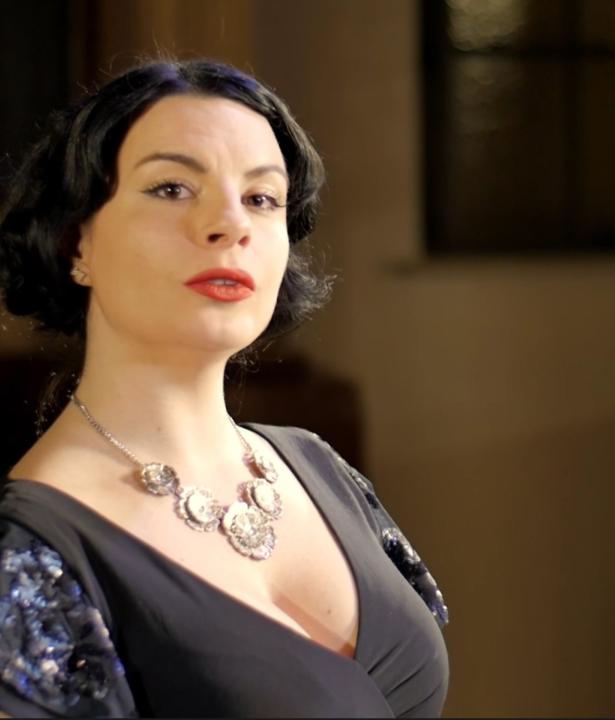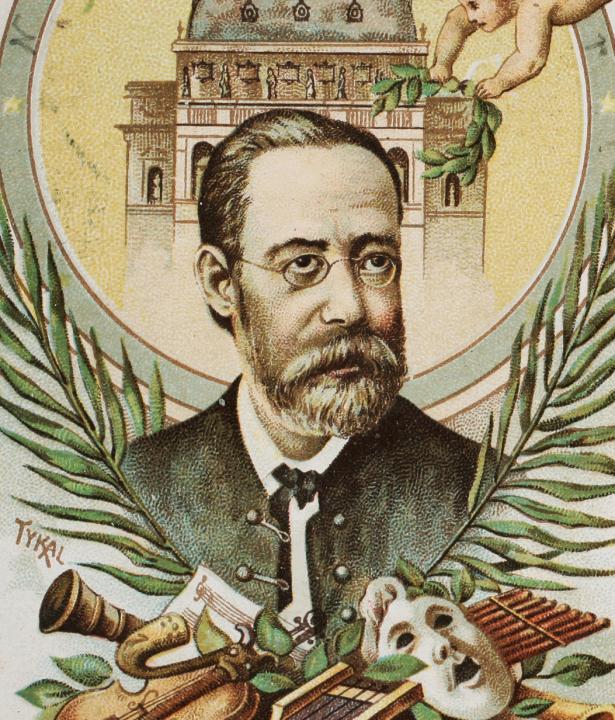Hans May (music), Ernst Neubach (text) / Erich Wolfgang Korngold (music), Paul Schott (text) / Richard Resch (tenor), Lutz Landwehr von Pragenau (piano)
Text
To this day, the songs featured here are inseparably associated with a performer who came from Bukovina: Joseph Schmidt (1904–1942), born in (today Давидівка, Dawydiwka/Ukraine), which at that time belonged to the Habsburg Monarchy. The son of Orthodox Jews, Schmidt studied singing in Berlin from 1925 and, from 1929, participated in 38 radio operas of the Berlin Radio. His records also made him one of the best-known singers of his time. His small stature (Schmidt was 1.54 m tall) prevented a worldwide stage career befitting his powerful tenor voice, but Schmidt was able to embody Rodolfo in Giacomo Puccini’s (1858–1924) La Bohème on Belgian and Finnish opera stages in 1939/40.
Davydivka
deu. Dawideny, ron. Davideni, rus. Davydovka, rus. Давыдовка, ukr. Давидівка
The village of Davydivka (German Dawideny until 1918) is located about 40 km southwest of Chernivtsi in the now Ukrainian part of Bukovina.
The seizure of power by the National Socialists in 1933 brought Schmidt’s career in Germany to an end. He spent the following years as an émigré in Austria, Belgium and France, where he was forcibly interned as a German in 1940. In October 1942, Schmidt fled to Switzerland. He arrived, exhausted, in an internment camp as an illegal refugee, and initially tried in vain to obtain a work permit. He fell ill, received inadequate treatment and died of heart failure in November 1942 at the age of only 38 – just one day before he would have received his work permit.
Text
Text
The first piece, Ein Lied geht um die Welt (A Song Goes Around the World), became a major recording success and was taken from a musical film of the same name, in which Schmidt played the leading role. The Berlin premiere of the film on May 9, 1933 was attended by Nazi propaganda minister Joseph Goebbels, who held Schmidt in high esteem and wanted to appoint him an “honorary Aryan.” The following day, however, the day of the book burning, Schmidt left Nazi Germany.
Text
Text
The second song, Glück, das mir verblieb (Joy, that remained to me), is from Erich Wolfgang Korngold’s (1897–1957) opera Die tote Stadt (The dead city) and became a recording success for Schmidt as well. Korngold, like Schmidt of Jewish origin, also emigrated from Austria, but had a happier fate and became a celebrated film composer and two-time Oscar winner in the United States.
Text
Richard Resch studied in Augsburg and Basel. Now he travels the world giving concerts and taking part in radio productions. His special focus is on early music and the cultivation of the art song. With his ensemble "Alerion" he released the debut CD "Lachrymarium" in 2021. A release of Schubert's "Winterreise" will follow soon.
<www.richardresch.eu>{#2614}
<www.richardresch.eu>{#2614}
Lutz Landwehr v. Pragenau (*1963) studied composition at the University of Music in Munich with Wilhelm Killmayer. Most recently, he received the Bavarian Composition Prize awarded by the Via Nova Choir in 2020. In his works he focuses on a radical reconciliation with traditional patterns of tonal music. For only in the conventional, familiar language does it seem possible to him to present the peculiarity and characteristics of his music in the form of deviation and discontinuity.
Text
English translation: William Connor
Externe Links









